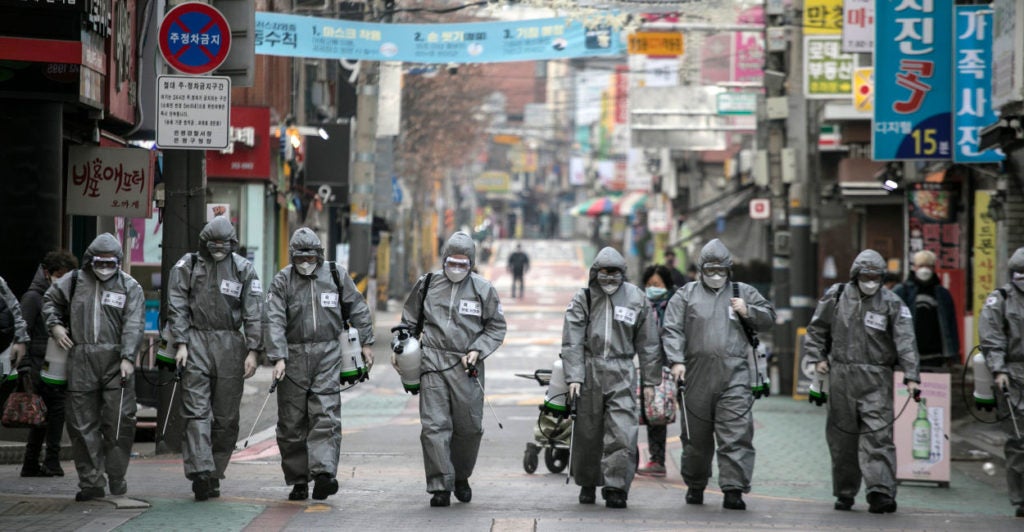From a foreign policy perspective, the COVID-19 pandemic shows why the United States should be in the business of preserving and advancing freedom, civil society, and other democratic values in practical partnerships with like-minded and willing allies, such as South Korea.
In fact, South Korea’s response to the coronavirus outbreak has been exemplary. That dynamic free-market democracy has successfully demonstrated its capacity to “flatten the curve” of the coronavirus while avoiding the kind of massive economic shutdowns being experienced throughout the United States and Europe.
Equally notably, the long-time ally of America, which has never postponed an election in its 75-year history, has become the first country to hold a general election effectively and fairly as scheduled (on April 15) in the midst of the current coronavirus pandemic.
>>> When can America reopen? The National Coronavirus Recovery Commission, a project of The Heritage Foundation, is gathering America’s top thinkers together to figure that out. Learn more here.
For generations, the U.S.-South Korea alliance has been the cornerstone of peace and prosperity in Northeast Asia.
South Korea’s relationship with the U.S. is based on shared values, people-to-people ties, and leading-edge business cooperation led by global companies in both countries, recognized as one of the most successful bilateral relationships that America has invested in and built.
Once a recipient of U.S. aid, South Korea has become one of the most dynamic free-market democracies in the world.
According to The Heritage Foundation’s annual Index of Economic Freedom, which measures a country’s overall business environment, South Korea is ranked 25th in the world as a “mostly free” economy.
With respect to COVID-19, former Secretary of State Henry Kissinger recently noted:
The crisis effort, however vast and necessary, must not crowd out the urgent task of launching a parallel enterprise for the transition to the post-coronavirus order.
… The contraction unleashed by the coronavirus is, in its speed and global scale, unlike anything ever known in history.
President Donald Trump has aptly described our ongoing battle against the pandemic as “the war against the invisible enemy.”
History reminds us that allies and partners are critical to defeating an enemy and winning any global fight. In fact, the value of alliances is most evident in times of hardship. The ongoing coronavirus pandemic surely qualifies and highlights the tremendous value of forward-looking alliances.
Throughout many trying and challenging times over the past several decades, South Korea has demonstrated its willingness and capacity to be a true ally for America.
That enduring alliance and partnership should continue to be based on shared and cherished values more than ever, not be relegated to “transactional relationships.”
